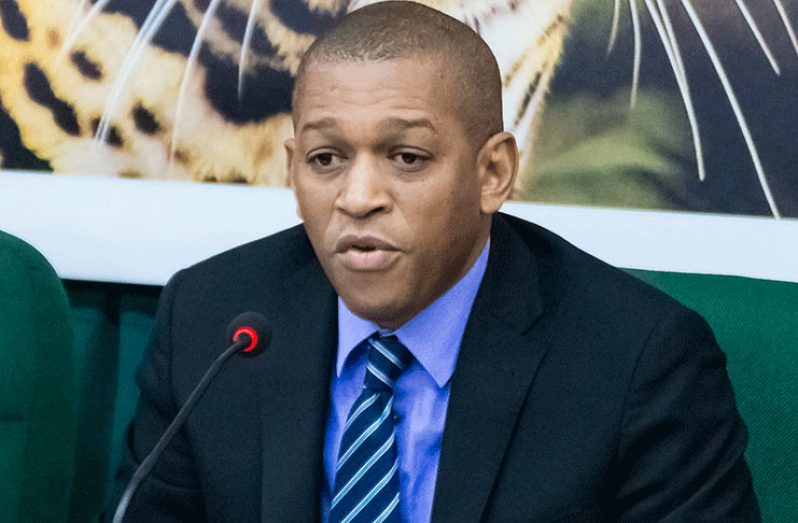–without first agreeing a depletion policy to manage oil reserves, DoE’s Mark Bynoe warns
GUYANA must soon commence discussions on whether it will need a depletion policy to manage its oil reserves.
This is according to Department of Energy Director Dr. Mark Bynoe, who made the observation at a recent press conference.
Dr. Bynoe said that with oil being a non-renewable resource, it is therefore subject to depletion, and that as Guyana begins to gather more information on its subsurface, it must reassess how it will proceed to extract and manage that commodity.
In some countries, he said, a depletion policy is utilised by governments to control the rate at which resources are extracted by a company.
And while Guyana has the option to pursue said course of action, Dr. Bynoe said, no such discussions have yet been had at the policy level, as the matter is not as simple as it sounds. As he put it, “It is not simply black and white.”
By way of explaining what he meant, Dr. Bynoe said that the country’s leaders must first contemplate whether it is in the best interest of its people to hold back on the extraction of its resources or extract it as soon as possible.
“An issue that we have to consider,” he said, “is what is Guyana’s interest; is it in Guyana’s interest to keep the oil in the ground for a longer period, like when the Norwegian began exploring? Or is it in Guyana’s interest to extract as quickly as it can; get its money, bank that, and move towards more sustainable industries? These are policy discussions to be had,” the Energy Director said.
But then again, he said, such discussions are not only meant for the Department of Energy, but for all local stakeholders.
A case in point, he said, is that if someone were to approach the average Guyanese with the charitable offer of $US1M and ask whether they would like to receive the money now or five years into the future, it is highly likely that most would reply, “Now.”
He said, too, that even though Guyana hopes to avoid being heavily dependent on oil by ploughing whatever revenues it gets from it into becoming a ‘green’ and diversified State, those plans will also have to be made with a rate of extraction in mind.
“These are decisions that Guyana has to make as a country,” he said, “as we’re living in an era of plenty, but we are also focused on reducing our carbon footprint. So, the discussion around decarbonisation is becoming more and more vocal and strident, and so it’s important for us to be able to make those considerations. It’s not just a simple straight-line decision, in terms of depletion policy or no depletion policy; it’s about the considerations that have to go into that.”
Dr. Bynoe also reminded his audience that the Department has decided not to issue any further oil blocks to allow for the enhancement of Guyana’s Legislative Framework.
The pause will also allow for a revision of the Production Sharing Agreement (PSA), and for the carrying out of 2D and 3D seismic surveys so that the country can better understand the amount and location of its assets.
The latter survey, he explained, will allow for the more informed issuance of oil blocks, and for an upper hand during negotiations.
“At the moment, we are fairly ignorant in terms of what is there in our shallow continental shelf for example, so we did go to market and we’ve received a number of bids which we are evaluating to do the 2D and 3D seismic [surveys],” Dr. Bynoe said.
He stated that there is “no great anxiety” for Guyana to rush into the awarding of additional oil blocks before the country prepares to move forward on a better and more informed footing.




.png)









